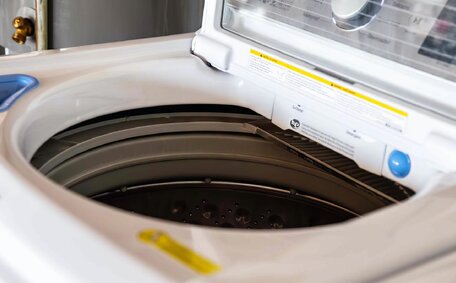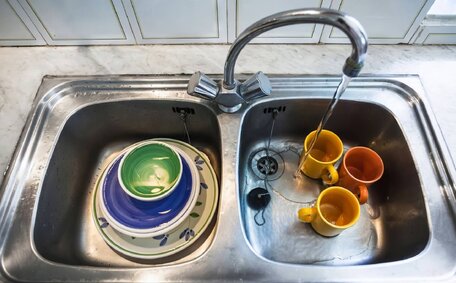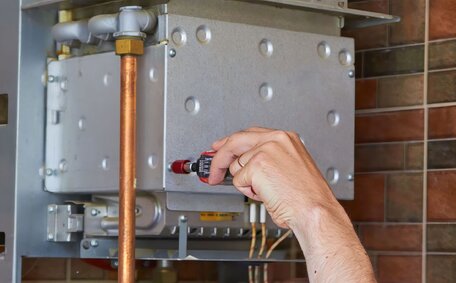Introduction to Calcium Build-Up in Pipes
Calcium buildup can create substantial plumbing issues in homes. This buildup occurs as hard water minerals deposit inside pipes, reducing water flow and causing low pressure, drain clogs, gurgling noises, and slow drainage.
Untreated calcium buildup can completely block pipes, resulting in expensive repairs. Fortunately, pipe relining offers a swift and efficient solution to remove calcium buildup, demonstrating how it can tackle pipe issues without the need to replace them. This trenchless method involves coating the inside of pipes with an epoxy resin to seal cracks and create a smooth, protected flow path.
Relined pipes prevent future problems by stopping mineral accumulation. This article provides guidance on removing calcium and pipe relining stops calcium buildup and helps clear blocked pipes through a simple, non-invasive process. We’ll explore the causes, the pipe relining process, along with preventive and maintenance strategies.
Causes and Effects of Calcium Deposits
Calcium buildup in pipes mainly stems from the minerals present in hard water. Similar to how cooking oil leaves a residue, as hard water cascades through conduits continually, the minerals adhere to surfaces and can also create strata of calcium accumulation in pipes.
The high mineral content of hard water your plumbing faces makes it predisposed to harboring calcium deposits. In regions where the water is particularly hard, similar to absorption seen in other materials, your plumbing might gather about 1mm of calcium in the pipes each year. Years of buildup can markedly reduce pipe diameter and water flow.
Calcium buildup can strain your pipes in several ways:
- Copper pipes - Deposits interact chemically with copper and can affect the pipe through accelerating corrosion and pitting.
- Iron steel fixtures - The pressure from buildup in pipes might impair your joints and instigate fissures.
- PVC & PEX pipes - Although less reactive, calcium restricts flow rates over time.
Accumulations progressing unhampered within your plumbing system signify that issues can escalate, potentially causing complete pipe blockage and ceasing water flow. Pipes might rupture from significant pressure, potentially leading to repercussions that damage your property and cause service disruption.
dislodged calcium scale may break down, then find their way down your drain, where solutions like vinegar and baking soda can mitigate these blockages. Calcium accretions additionally furnish an ideal setting for bacteria and biofilm to thrive, particularly in locations like your sink drain.
Relining pipes permits us to revitalise flow capacity, preventing new calcium from adhering as water flows through, shielding your plumbing system’s integrity. The slick epoxy barrier prevents deposits from sticking to pipes, eradicating existing and potential accumulations that might cause clogs, exemplifying how remove calcium buildup effectively.
Traditional Pipe Replacement vs Pipe Relining
Faced with calcium accumulation that could result in clogged pipes, homeowners frequently choose complete pipe replacement, similar to extensive repairs in structural work. However, this invasive alternative necessitates breaking open walls and floors for pipe mending or traditional pipe lining, often due to broken blocked segments. It leaves behind extensive damage and high repair bills.
Our Blueline service delivers pipe relining swiftly, providing a less disruptive option than traditional repairs while rejuvenating pipe functionality without the need for replacement. Our Blueline trenchless epoxy resin liners can be inserted quickly into existing pipes through small access points. As The flexible liner hardens and conforms to pipe walls, it creates a smooth protective layer, effectively preventing a clogged drain by isolating calcium deposits.
Key benefits of pipe relining vs traditional replacement include:
- Much less invasive - Requires just a few small wall/floor openings rather than large-scale demolition.
- Significantly lower cost - On average, relining saves 60% over a full system replacement.
- Much faster installation - Set within 2-3 hours, enabling same-day use with minimal downtime.
- Added pipe strength - Fibre-reinforced epoxy liner blocks out minerals which can otherwise lead to future pipe deterioration.
- Maximised flow - Our coatings offer smooth, scale-resistant water circulation.
In scenarios where calcium buildup or damaged pipes due to intense corrosion suggest complications, full replacement or structural repair might still be essential. Our team can assess your pipes and recommend the best solution during a routine maintenance inspection or when addressing drain blockages.
For most homes, epoxy pipe relining is a more cost-effective solution for scale deposits than full pipe replacement. Contact our plumbing service today to learn more about keeping your plumbing system calcium-free for good.
How Pipe Relining Removes Calcium Build-Up
Pipe relining is highly effective at treating your plumbing system to remove calcium deposits while preventing future buildup. The process involves inserting an epoxy resin layer into pipes, ensuring unobstructed flow with continuous protection, similar to a toilet bowl’s surface.
As the flexible liner is inflated with highpressure water and pressed into place, it removes old mineral scale, addressing the calcium buildup your pipes may have. It then chemically bonds to form a slick new pipe wall that ensures your water system flows smoothly without mineral deposits adhering to it.
This epoxy barrier seals out minerals and provides long-lasting scale resistance for all common pipe materials:
- PVC & PEX - Plastic pipes stay clear as relining works to remove any settled deposits, averting future mineral-related obstructions.
- Cast Iron - Old iron pipes prone to rupturing from calcium build stress are now reinforced.
- Copper - Corrosion and pitting from calcium is prevented through isolation.
Lined pipes are fundamentally reimagined as a "pipe within a pipe". The sound inner wall resists mineral penetration, forestalling buildup in your pipes, thus ensuring unhindered flow water. Water moves smoothly without gathering deposits.
Pipe relining eliminates existing buildup and protects against future accumulation, keeping your plumbing clear for decades. It tackles the root cause instead of just unblocking pipes now. Contact our team to learn more and safeguard your plumbing from calcium damage.
The Pipe Relining Process Step-by-Step
Pipe relining follows a careful step-by-step process designed to renew old pipes of any material without excavation or pipe replacement. Our crew first assesses the site and pipes, then performs the series of steps for enduring results:
- Inspection: We use CCTV to thoroughly examine the pipe layout and dimensions. This identifies existing calcium deposits and other damage for the liner to target.
- Cleaning: Next, we conduct drain cleaning, typically employing a water jetter with hydro jetting methods to propel through pipes and clear blockages from loose detritus, ensuring the liner bonds with the pipe interior.
- Liner Installation: A resin-soaked liner matching the pipe shape is then fed through and inflated to press firmly into place. Larger pipes may require steam for faster curing.
- Curing Process: Once aligned, calibrated UV lights cure the liner for 2-3 hours until fully hardened. Hot water circulation often accelerates this setting process.
- Service Restoration: Finally, entry points are sealed and normal water supply is restored. The smooth neo-pipe is ready for calcium-free water flow.
Our trenchless pipe relining restores pipe function within buildings rapidly in just a single visit. The resin materials and installation process ensure long-term pipe durability across residential and commercial sites, maintaining pipes without complications. Contact our team today to learn more!
Choosing the Right Pipe Relining Method and Materials
Selecting the right pipe relining method and materials requires considering several factors. The age and composition of your existing pipes is an important factor - older pipes, especially those made of steel and cast iron, tend to be amazing candidates for epoxy relining due to corrosion and calcium buildup issues.
Modern materials such as PEX resist mineral deposits well, often needing simpler solutions for calcium buildup. Nevertheless, PEX pipes, with a lifespan of about 25 years, may eventually need epoxy barriers for continuous scale prevention.
The extent of calcium deposits or other damage also determines what relining solution would work best. Minor buildup can be managed with basic pipe coatings, but severe accumulation requires more heavy-duty epoxy liners.
Our team of licencing expert plumbers assess each unique plumbing system to recommend the ideal relining method. Whether fibre-reinforced CIPP liners, spray-on epoxy coatings or simply pipe descaling, we choose technologies fit for purpose.
We keep up to date on the latest trenchless pipe renovation techniques and materials to provide tailored relining that maximises results with minimal disruption. Contact us today to schedule an on-site inspection and discuss the optimal plan for your pipes.
Preventing Future Calcium Build-Up
To can help prevent future calcium build-up after pipe relining, there are several maintenance steps homeowners can follow:
Install a Water Softener
Installing a water softener system can resolve hard tap water issues, eliminating calcium deposits and preventing scaling. They use a process called ion-exchange to remove calcium and magnesium ions, transforming hard water into soft water.
Change Faucet Aerators
Knowing how to clear calcium-laden showerheads and faucets is essential for enhanced water flow post-relining. The new fittings combat mineral buildup, addressing the problems caused by hard water.
De-Scale Pipes Regularly
Every 2-3 months, introduce a vinegar, baking soda, and lemon juice mixture into your drains, which can be let sit with warm water to dissolve nascent deposits before they become problematic.
Improve Ventilation
Ensuring bathrooms and other wet areas have adequate ventilation, can lead to water flow improvements much like optimising a shower head for better spray patterns that lowers moisture accumulation, reducing calcium carbonate buildup on surfaces.
Our certified Sydney plumbers excel at installing water softener systems to devise a way to remove calcium depositing and can counsel on optimal descaling agents for your requirements. Contact us today to prevent calcium obstructing your drains with beautifully renewed pipes.
When to Call a Professional Plumber
Although pipe relining provides an excellent solution for calcium build-up issues, there are times when professional help is required:
- For a full inspection - Identifying potential issues like a blocked drain or suspecting calcium deposits, call our team for a comprehensive pipe evaluation. We can verify the issue and scope the repair requirements for your drain.
- When build-up is severe - Heavy calcium accumulation sometimes needs supplementary descaling before relining pipes, much as a blocked drain can necessitate professional intervention. Our technicians have industrial descaling equipment, including a drain snake, to clear even the worst deposits.
- For emergency plumbing issues - We provide 24/7 assistance for those dealing with immediate sewer stormwater system issues, including leaks, bursts, and blocked drains caused by sanitary products. Our vans are stocked to handle urgent issues whenever they strike.
- If DIY efforts fail - Well-meaning DIY attempts with caustic cleaners for chemical descaling or pipe clearing often go awry. Call us when amateur efforts are ineffective before the problem worsens.
- For specialist pipe relining - Our experienced team understand diy drain solutions and know which trenchless method and materials make the most sense for your blocked pipes based on layout, access and budget.
With over a decade of service in Sydney, our family-owned Parramatta Plumbing has extensive experience with calcium buildup in pipes. Our comprehensive expertise enables us to swiftly and efficiently manage plumbing emergencies, tree root-related drainage problems, or pipe refurbishment challenges.
Contact our team on 1300 349 338 or email jobs@parramattaplumbingservices.com.au to learn more about our calcium and descaling services.






